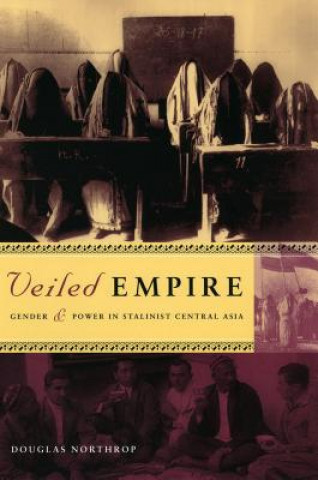
Kézbesítés
Vásárlási tanácsadó





Nem vált be? Semmi gond! Nálunk 30 napon belül visszaküldheti
 Ajándékutalvány
bármilyen értékben
Ajándékutalvány
bármilyen értékben
Ajándékutalvánnyal nem nyúlhat mellé. A megajándékozott az ajándékutalványért bármit választhat kínálatunkból.
Veiled Empire
 Angol
Angol
 397 b
397 b
30 nap a termék visszaküldésére
Ezt is ajánljuk


Drawing on extensive research in the archives of Russia and Uzbekistan, Douglas Northrop here reconstructs the turbulent history of a Soviet campaign that sought to end the seclusion of Muslim women. In Uzbekistan it focused above all on a massive effort to eliminate the heavy horsehair-and-cotton veils worn by many women and girls. This campaign against the veil was, in Northrop's view, emblematic of the larger Soviet attempt to bring the proletarian revolution to Muslim Central Asia, a region Soviets saw as primitive and backward. This unveiling campaign, however, took place in the context of a half-century of Russian colonization and the suspicion of rural Muslim peasants toward an urban, colonial state. Resistance to the idea of unveiling quickly appeared and developed into a broader anti-Soviet animosity among Uzbeks of both sexes. Over the next quarter-century a bitter and often violent confrontation ensued, with battles being waged over indigenous practices of veiling and seclusion. New local and national identities coalesced around the very symbols that had been placed under attack. Despite their stated goals, Bolshevik leaders inadvertently "strengthened the seclusion of Uzbek women. Soviet efforts were largely responsible for creating the veil as a "national" symbol emblematic of a "tradition" that actually was quite new. Northrop's fascinating and evocative book thus shows both the fluidity of Central Asian cultural practices and the real limits that existed on Stalinist authority, even during the ostensibly totalitarian 1930s.
Információ a könyvről
 Angol
Angol
Kategória


 Kapcsolat
Kapcsolat Hogyan vásároljunk
Hogyan vásároljunk
























